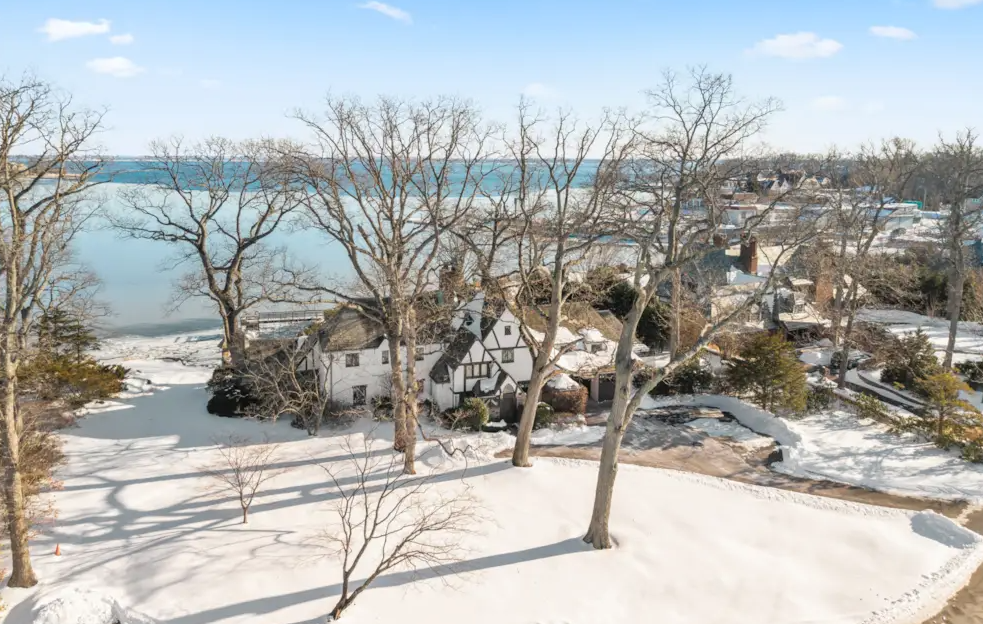Home Prices Continue to Slide, and NY's No Exception
The New York region isn’t immune to the housing troubles plaguing the rest of the nation, according to data released yesterday. The Standard & Poor’s/Case-Shiller indexes found that home prices in 20 large metropolitan regions fell 6.1 percent from last October to October ‘07; year-over-year values in New York, meanwhile, dropped 4.1 percent. While the…

 The New York region isn’t immune to the housing troubles plaguing the rest of the nation, according to data released yesterday. The Standard & Poor’s/Case-Shiller indexes found that home prices in 20 large metropolitan regions fell 6.1 percent from last October to October ‘07; year-over-year values in New York, meanwhile, dropped 4.1 percent. While the data covers the whole New York region rather than just the five boroughs, an S&P analyst told the Sun that the numbers reflect the city’s changing fortunes. “We track a large area where the homeowners’ livelihood ties back to the New York City economy,” the chairman of the index committee at Standard & Poor’s, David Blitzer, said. “The home prices in New York have been weak, and don’t show signs of a quick turnaround. Several New York analysts, however, believe that closings on high-end properties will buoy the city’s market—closings that are tied to Wall Street bonuses. “For New York City, the wild card will be what happens with Wall Street,” Jonathan Miller, the director of research at Radar Logic, said. “The impact on real estate will be more associated with jobs and bonuses than anything else.”
The New York region isn’t immune to the housing troubles plaguing the rest of the nation, according to data released yesterday. The Standard & Poor’s/Case-Shiller indexes found that home prices in 20 large metropolitan regions fell 6.1 percent from last October to October ‘07; year-over-year values in New York, meanwhile, dropped 4.1 percent. While the data covers the whole New York region rather than just the five boroughs, an S&P analyst told the Sun that the numbers reflect the city’s changing fortunes. “We track a large area where the homeowners’ livelihood ties back to the New York City economy,” the chairman of the index committee at Standard & Poor’s, David Blitzer, said. “The home prices in New York have been weak, and don’t show signs of a quick turnaround. Several New York analysts, however, believe that closings on high-end properties will buoy the city’s market—closings that are tied to Wall Street bonuses. “For New York City, the wild card will be what happens with Wall Street,” Jonathan Miller, the director of research at Radar Logic, said. “The impact on real estate will be more associated with jobs and bonuses than anything else.”
Home Prices Fell Faster in October [NY Times]
A Bearish Sign for N.Y. Home Prices [NY Sun]





We looked into moving to Stamford last year.
Apart from one school, the Public Schools are HORRIBLE
What the hell are people paying 12 to 18K in property taxes for if the schools suck?
“What about the public schools – aren’t they pretty good in Stamford?
We looked into moving to Stamford last year.
Apart from one school, the Public Schools are HORRIBLE
I work in the garment textile industry, so I deal a lot with Chinese suppliers/factories. The bilateral trade bet US and China will only grow going forward, don’t believe everything you read and hear in the media. Based on purchase-parity economics, Chinese economy is already bigger than US.
“Stamford is 40 mins from Grand Central”
Its also 12k to 18k real estate taxes, every year, for the rest of your life!
Polemecist & Brooklynnative:
I suspect the valuation discrepancy you’ve noticed has a lot to do with relative property taxes. Property taxes on 1&2 family homes in the outer boroughs are just much, much lower than on properties in Westchester and CT. The property tax burden of Westchester/CT gets capitalized into the home price. A $25K annual property tax bill — not at all unusual in Westchester for <$1mio houses -- will shave a multiple of that off the sale price.
Brooklyn Zoo – how much does a Metro card run you per month? What about the public schools – aren’t they pretty good in Stamford? Do most kids go to public schools there?
The China connection has had two huge deflationary effects. First, the fact that they buy so many bonds helps us keep our interest rates low. Second, their low cost goods have also helped keep inflation down. If either one of these lesses for whatever reason, inflation will go up.
Regarding what Brooklynnative just said, how does the recent backlash against Chinese goods play out against this? We’re also getting lot of stories coming out about their massive environmental pollution, labor practices,(not news there), political corruption, etc.
Seems to me there is going to be a backlash in the next couple of years against Chinese goods, until the West sees some improvement in theses areas. How will that affect our economy in general, real estate, specifically?
Stamford is 40 mins from Grand Central, but you have to pay for a lovely Metro North ticket to get to NYC, twice a day, every day, if you work here. That brings your cost of living way way up. No subways to Westchester either. So its tough to compare Westchester/Stamford to Bayridge based solely on travel time.